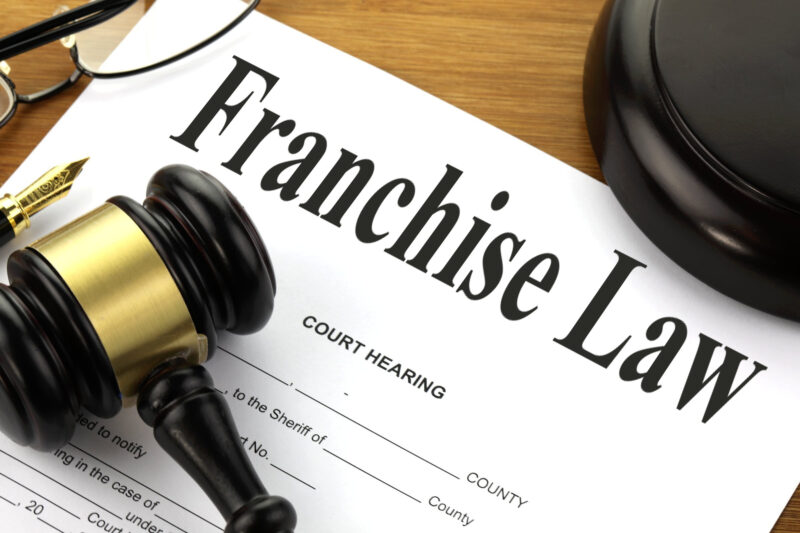The realm of franchising embodies a unique blend of entrepreneurship and established business models, drawing countless investors and operators into its fold. Yet, beneath the surface of lucrative opportunities lies a labyrinth of legal intricacies and contractual obligations, prompting many to ponder: Are franchise attorneys truly indispensable, or have they become an overrated facet of this expansive industry?
On one hand, these legal experts offer invaluable guidance through the dense thicket of franchise laws, ensuring compliance and safeguarding one’s investment. On the other hand, skeptics argue that such guidance may sometimes be excessive, feeding into a cycle of unnecessary expense.
As we delve into this debate, it’s essential to navigate both the perceived benefits and potential drawbacks of employing franchise attorneys, unraveling the question posed at the very heart of this discourse.
The Role of Franchise Attorneys: Necessary or Overrated?

Franchise attorneys often find themselves at the center of a heated debate: are they an essential part of the franchise puzzle or merely an added expense that can be circumvented? On one hand, the complexity of franchise agreements—laden with legal jargon and intricate stipulations—demands a level of expertise that can be daunting for the uninitiated.
These are not just one-size-fits-all contracts; each document can drastically influence the franchisees rights, responsibilities, and overall success. Yet, skeptics argue that with the wealth of resources available online, many entrepreneurs could navigate the landscape without legal counsel. But therein lies the rub: the nuances of franchising laws vary significantly by state and can change rapidly, which means the price of ignorance can be steep.
Ultimately, while some may view franchise attorneys as an overrated line item in the budget, their role as knowledgeable navigators through the tumultuous waters of franchise law can often prove invaluable, ensuring that both franchisors and franchisees safeguard their interests effectively.
The Importance of Franchise Attorneys

Franchise attorneys play an integral role in the often perplexing landscape of franchising, acting as navigators for both franchisors and franchisees. Their expertise extends beyond mere paperwork; they delve deep into the complexities of franchise agreements, ensuring all parties understand their rights and obligations. Imagine entering a partnership laden with legal jargon and hidden clauses—without an attorney, those crucial details could easily slip through the cracks, resulting in costly disputes down the line.
These legal professionals not only safeguard individual interests but also foster a framework of compliance and best practices within the franchise ecosystem. From negotiating terms to resolving conflicts, the presence of a skilled franchise attorney transforms what could be an overwhelming process into a manageable journey, underscoring their significance in the franchising world. With their guidance, franchises can thrive, adapting to the ebb and flow of market demands while remaining on solid legal ground.
Benefits of Hiring a Franchise Attorney

Hiring a franchise attorney brings a wealth of advantages that can significantly impact the success of your franchise endeavor. First and foremost, these legal professionals possess specialized knowledge of franchise laws, enabling them to navigate the often murky waters of regulations that vary from state to state.
They provide critical insights during the franchise disclosure document (FDD) review process, ensuring that all necessary information is transparently communicated to prospective franchisees. Furthermore, a franchise attorney can identify potential red flags in contracts that could be detrimental in the long run, allowing you to negotiate terms that align more closely with your business goals. Their support extends beyond just paperwork; they can help mitigate disputes and facilitate smoother relationships between franchisors and franchisees.
This layer of legal expertise can foster confidence in your investment, ensuring you’re better equipped to tackle the challenges of franchising head-on. In the complex world of franchise agreements, having a knowledgeable ally in your corner may be one of the smartest decisions you ever make.
Conclusion
In conclusion, the role of franchise attorneys is a nuanced topic that elicits a range of perspectives within the franchising community. While some may view their involvement as unnecessary, especially for those with a strong grasp of franchise operations and legalities, the expertise of a franchise attorney can be invaluable in navigating the complexities of franchise agreements and compliance.
Their knowledge not only helps to mitigate risks but also empowers franchisors and franchisees to make informed decisions, fostering a healthier franchise system overall. Ultimately, the choice to engage a franchise attorney should reflect the specific needs and circumstances of the parties involved, weighing the potential benefits against the perceived costs to ensure a successful franchise relationship.


